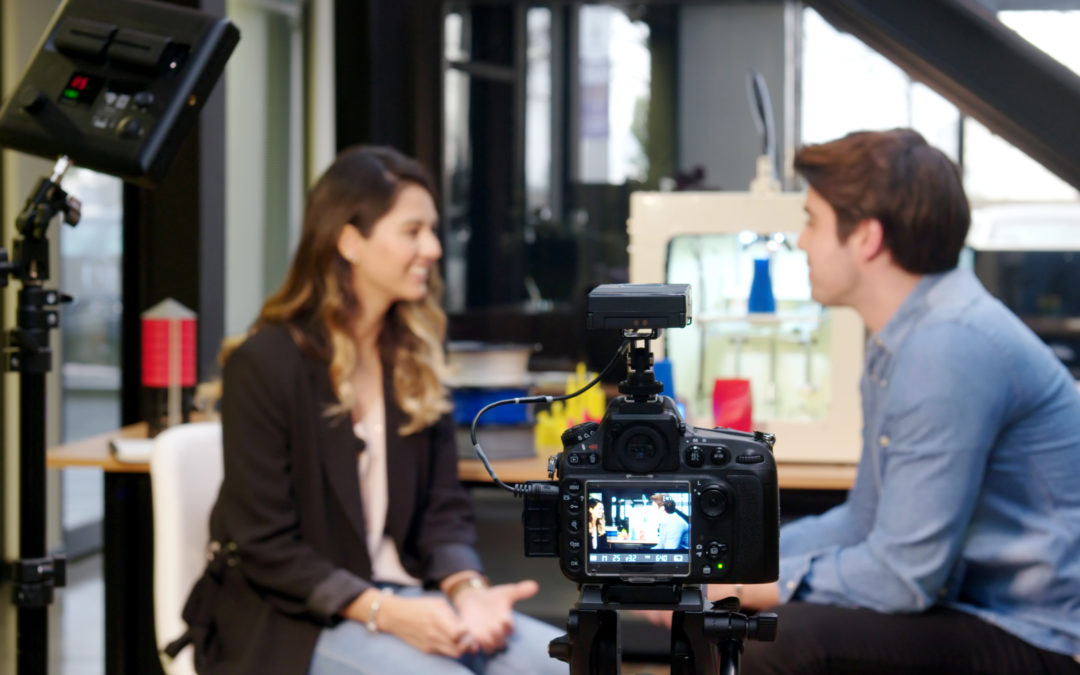
When you represent a business, you need to be comfortable in front of the camera because it’s a critical medium. It’s important to come across as confident, credible, and knowledgeable. Your interview may be seen by future investors, stakeholders, and employees, so you must deliver your message clearly.
Although not all employees, even senior-level executives, are born to be spokespersons, professional and customized media training can instill confidence. In most cases, confidence is all you need to communicate with impact.
When you train to do interviews with the media, you improve communication skills and develop an authoritative persona that can establish the public’s trust for your business.
Before the Interview
Your pre-interview training may include the following preparations:
1. Decide on your message.
Know your message well. It’s not a good idea to just skim the notes for a general idea of what you’re going to say because the reporter may probe deeper. If you’re not prepared to answer with details, it would reflect poorly on you and the business.
2. Think about the likely questions.
You know the key points of your message. Now, consider what clarifications or issues the reporter could raise. It’s a good idea to have the appropriate answers prepared. Doing this demonstrates your knowledge about the matter at hand and that you’re the right person to talk about it.
3. Consider the goal of the interview.
What’s the purpose of this interaction with the media? You’ll want to be clear about your goal because it allows you to stay on message. Some reporters may throw a question that isn’t relevant to what you’ve come to discuss.
It’s polite to respond to questions, but you need to be focused on delivering your message. Do not let an unrelated question distract your audience from your news, campaign, or business update.
4. Know your audience.
An effective message is tailored to its audience. Who are you trying to reach, the public or the business community?
An understanding of your audience’s concerns, interests and demographics allows you to talk to them as though you were in their living room or office. When this happens, you boost engagement and achieve your goal for the interview.
5. Do your research.
Reporters are going to want to learn everything about you and your business. Adopt the same attitude by knowing about the news outlet a reporter represents, the format for the interview, and the usual questions they pose. When you dive into the background of your interviewer, you’ll be well prepared for what they’ll throw at you and remain in control.
6. Warm up.
Nerves will get the better of you sometimes. It helps to practice for your interview. It will help you get comfortable looking into the camera, too. Go over your main talking points and get comfortable without referring to your notes. Include some brain training techniques in your warm up to perform well during the interview.
During the Interview
Your training for the interview proper will typically include the following points:
1. Be concise and speak with clarity.
An on-camera interview will be brief most times, unless it’s recorded and intended to run for an hour. You may not have enough time to convey everything; so focus on two or three main points.
Keep your audience engaged by staying on message and speaking clearly. That means avoiding industry jargon if your intended audience is the public.
2. Try sound bites.
When you need to get more mileage out of your interview, make it shareable on social media by using sound bites. They’re easy to quote because they’re a concise representation of your messaging.
3. Always let the interviewer finish their question.
Get the full picture before you answer. So never interrupt the person doing the interview. Interruptions not only confuse some people, but they may also prevent you from providing a complete response, or lead you to giving an incorrect answer.
4. Try not to speculate.
When it’s a busy time for news, you may be asked to weigh in on current events. Because you’re representing your company, it may be wise to redirect the conversation to your messaging. Validate the importance of the issue, but decline to comment if you’re not certain about your business’s position.
5. Correct false information.
Never let wrong data or statements go uncorrected. But be gracious about the correction and back up your information with sources.
6. Maintain composure.
Some interviews could get heated when the topic is sensitive or controversial. As the ambassador of your company, you must stay cool even when some questions become provocative.
Your body language, the pitch of your voice and facial expressions are all magnified by the camera. So it’s crucial to get professional training with an expert who can teach you all about composure. A Dubai presenter with a background in media consulting, for example, could provide valuable insight.
You can excel in any on-camera interview with adequate preparation and professional training. Be confident, know your audience and message well, and represent your company with enthusiasm.
